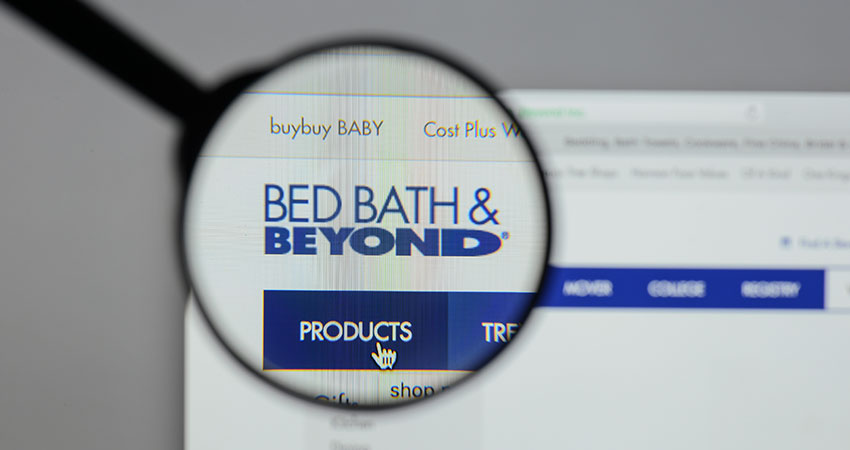Ailing home refresh retailer Bed Bath & Beyond is hoping more than $1 billion in proceeds from two separate stock sales will be enough to pay down interest and some debt to creditors and stave off impending bankruptcy, but many analysts are doubtful it will succeed.
In a release, Bed Bath & Beyond said it has received $225 million from sale of its Series A stock, with an additional $800 million expected from the issuance of securities promising future share purchases.
[Update: upon closing the initial sale of stock today, Bed Bath & Beyond said it plans to reduce its fleet of stores to 360 under its main banner plus 120 buybuyBaby outlets; it has already sold off all its Harmon locations.]
Bed Bath & Beyond hopes to use those funds, along with $100 million from its credit facility, to pay down part of its debt plus outstanding interest payments by March 3 in order to have existing default penalties waived under an amended agreement with creditors.
This news comes after the Union, NJ-based retailer announced plans to close 87 more stores in the coming weeks, in addition to the 150 that were shuttered last year. A year ago there were 953 stores in the U.S., including Harmon and buybuyBaby outlets; there are now about 700.
Last month, Bed Bath & Beyond reported net sales and comparable sales down, as well as a loss of $393 million for fiscal 2022, as it announced it was seeking alternatives, up to and including a Chapter 11 bankruptcy filing.
“As we shared last week, we continue to work with advisors as we consider all strategic alternatives to accomplish our near- and long-term goals,” said CEO Susan Gove on an earnings call that had no questions from analysts. “We have a team, internally and externally, with proven experience helping companies successfully navigate complex situations and become stronger. Multiple paths are being explored and we are determining our next steps thoroughly and in a timely manner.”
Gove placed much of the blame on an ill-advised store redesign and a shift to white-label brands vs. nationally recognized labels under prior CEO Mark Tritton. The former Target executive was fired in June after pressure from activist investor and director Ryan Cohen, who subsequently sold his stake after the company agreed to add his three director candidates.
Now Cohen is hounding Tritton at Nordstrom, challenged the latter’s board seat after acquiring a sizable stake there. Cohen said he believes Tritton has a conflict of interest on the compensation committee due to his former employment at Nordstrom, according to the Wall Street Journal. Meanwhile some observers see Cohen seeking another meme stock win with his Nordstrom play.
Neil Saunders, managing director of retail at Global Data, said Bed Bath & Beyond was “grasping at straws” with the stock sale, as they’ve been unable to find a white knight buyer or raise funds through loans.
“The problem is, most investors won’t be interested in buying into an insolvent company,” Saunders said. “Their (company management’s) hope is that more irrational meme-stockers will ride to their rescue. In truth this is a Hail Mary pass to keep a sinking ship afloat.”
By rights, Saunders said, Bed Bath & Beyond should be in bankruptcy. But without funding or potential buyers it fears entering Chapter 11, as a judge could take the issue out of management’s hands and order a Chapter 7 liquidation.
“The game played here has been long, and management deserves some credit for exploring all the options,” he said. “But time is now ticking down and it won’t be long before things will come to a head.”

